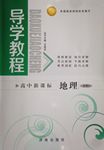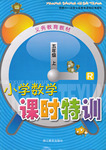题目内容
C
In the early days of human history, people lived by hunting wild animals, or gathering wild grains and plants for food. Then, some people learned to grow crops and raise animals for food. They were the first farmers.
Since the sixteenth century, the word farm has meant agricultural land. But a much older meaning of the word farm is linked to economics. The word farm comes from the Latin word, firma, which means an unchanging payment.
Experts say the earliest meaning of the English word farm was a yearly payment made as a tax or rent.
Farmers in early England did not own their land. They paid every year to use agricultural lands.
Beans are a popular farm crop. But beans are used to describe something of very little value in the expression, not worth a hill of beans. The expression is often used today. You could say, for example, that a bad idea is not worth a hill of beans.
Language expert Charles Earle Funk said the expression was first used almost seven hundred years ago. He said Robert of Gloucester described a message from the King of Germany to King John of England as altogether not worth a bean.
49. In the early days of human history, how did people live?
A. By raising animals. B. By hunting wild animals.
C. By growing crops. D. By selling plants.
50. What is the much older meaning of “farm” linked to?
A. Agriculture. B. Industry. C. Economics. D. Changing payment.
51. What does the expression “not worth a hill of beans” mean?
A. Very important. B. Very valuable. C. Not valuable. D. Not expensive.
52. Which of the following is NOT true?
A. Since the sixteenth century, the word farm has meant agricultural land.
B. The word farm comes from the Latin word.
C. Farmers in early England owned their land.
D. The expression “not worth a hill of beans” was first used almost seven hundred years ago.
49---52 BCCC
解析

 导学教程高中新课标系列答案
导学教程高中新课标系列答案 小学课时特训系列答案
小学课时特训系列答案根据短文内容,从短文后的选项中选出能填入空白处的最佳选项。选项中有两项为多余选项。
I live in Japan, where electronic items are a way of life, so it is no surprise that many students carry these little electronic dictionaries. E-dictionaries may be lighter and compacter (简洁的) than any paper dictionary. 【小题1】 However, to me, these are pretty much the limits to their advantages.
I think e-dictionaries should be limited in their use in classrooms. 【小题2】
E-dictionaries are much more expensive. In Japan, they cost as little as 10,000 yen(US$100)much as 40,000 yen, depending on how many functions you want (or think you want) and depending on how fashionable you are. My trusty Random House paper dictionary is copyrighted at1995, cost me a mere US$12.95 plus tax.
E-dictionaries are more fragile. Drop your paper dictionary. Go ahead. Hold it above your head and drop it. 【小题3】
E-dictionaries need batteries. Batteries are temperature sensitive. Batteries cost money, too.
E-dictionaries have keypads. Typing in the spelling of a word is harder and more time consuming than looking through pages and using the index at the top of each page.
【小题4】 Sound . Little devices beep (嘟嘟声) when you press the buttons, but it is very disturbing to some people in a classroom situation or library.
Finally, let’s consider making corrections or additions. No dictionary is perfect, paper version or electronic. However, when you find something you’d like to change in the e-dictionary, you can’t do anything about it. You can pencil in some notes with the paper type. Similarly, if you learn a word that isn’t in the dictionary, a few notes of a pencil make it easy to increase its memory capacity. 【小题5】And, for those students whose habit is to mark certain words with a highlight pen for ease of future reference, again, the paper dictionary wins out.
| A.But it is impossible to do so with a keypad model. |
| B.They may even contain more words and expressions. |
| C. Let me add a statement about one that really troubles me. |
| D.Now, try this with any lightweight plastic e-dictionary, and you’ll be picking up the pieces. |
F.E-dictionaries have advantages as well as disadvantages.
G.Let’s take a look at the following reasons.